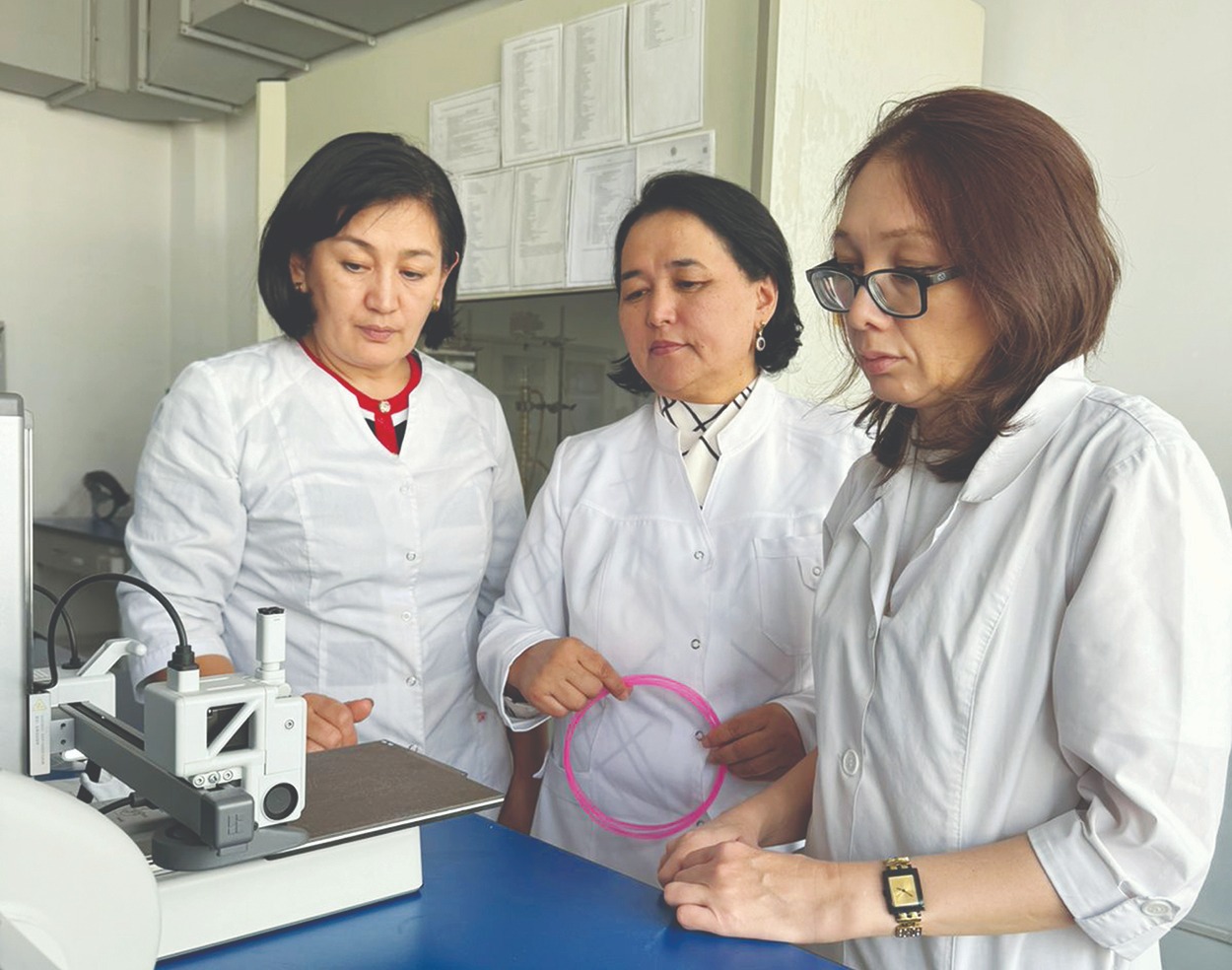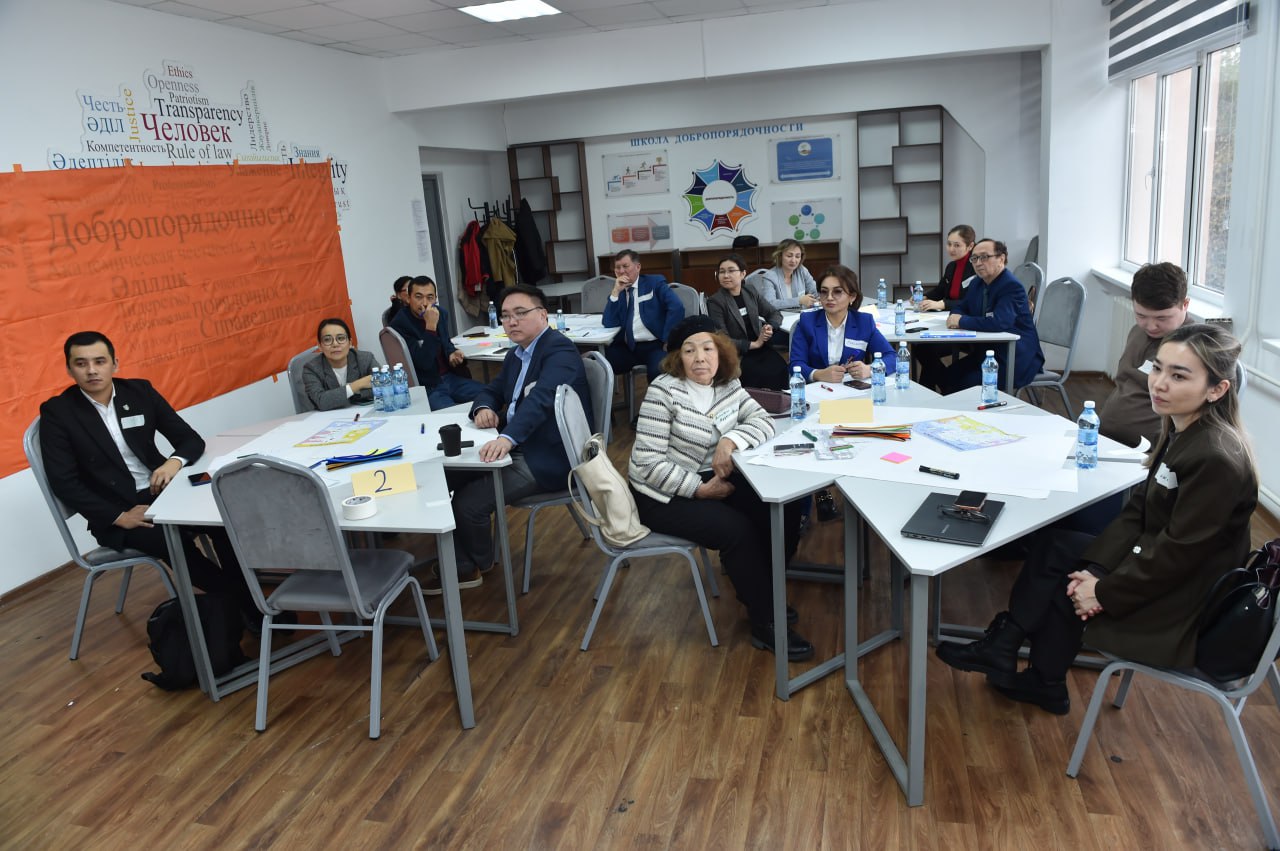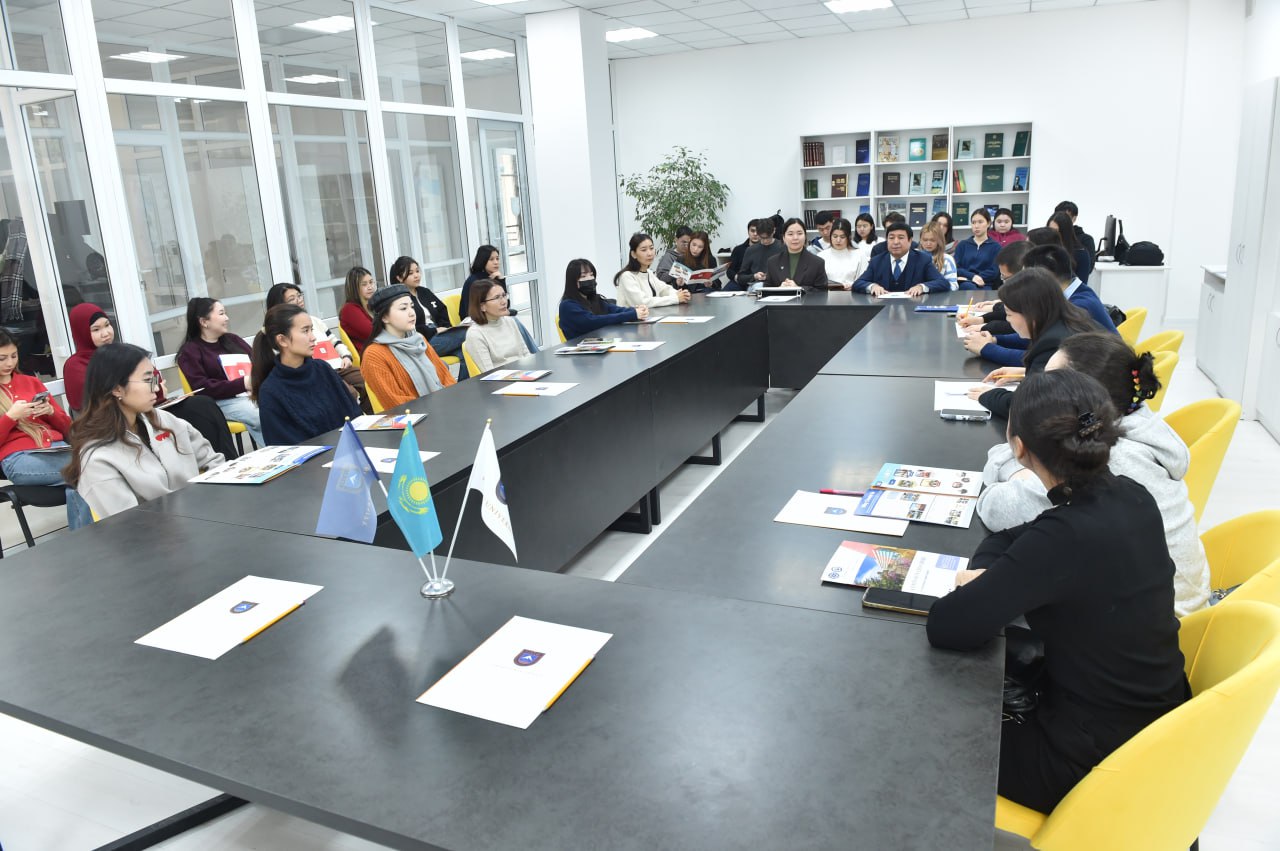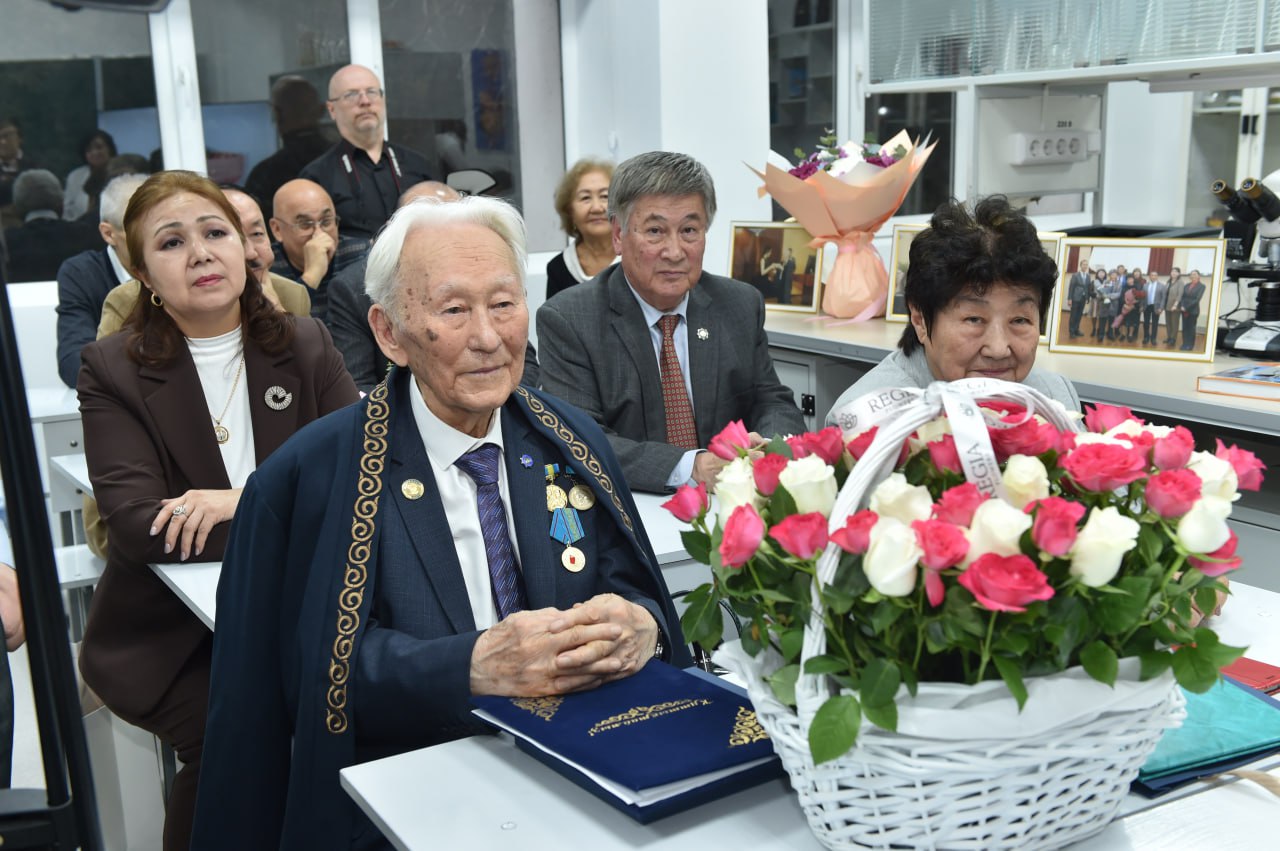Chemists of KazNU in the world scientific ranking

According to the AD Scientific Index international agency ranking, a group of faculty members from the Department of Organic Substances, Natural Compounds, and Polymer Chemistry and Technology at Al-Farabi Kazakh National University has been included among the top scientists in Kazakhstan (https://www.adscientificindex.com). This ranking is based on the scientific productivity of individual researchers over the past six years and is indexed by the Google Scholar analysis system.
In this regard, a reporter from the "Qazaq universiteti" newspaper recently interviewed scientists who have achieved high levels of success in the field of polymer chemistry.
– First of all, congratulations to you. How did you achieve such a scientific accomplishment?
Perizat Urkimbayeva:
– We must acknowledge that we have reached this success thanks to the state support for developing the modern direction of science. The university administration also continuously supports projects that drive science forward. In recent years, the number of publications in international journals indexed in the Web of Science and Scopus databases has been increasing as we summarize scientific works. This is primarily a result of prioritizing the improvement of research quality and the cooperation with leading universities and research institutes worldwide.
– Could you tell us about the current scientific work you are involved in?
Zarina Kenesova:
– In his latest address, President Kassym-Jomart Tokayev paid special attention to the issue of ecology and environmental protection. He stated, "Environmental protection and ecological development are top priorities for our country. The entire civilized world is engaged with this issue. We cannot be left behind in this process. A new draft of the Ecological Code, which will pave the way for solving these problems, has been developed." In this regard, I would like to mention that many of the scientific projects conducted at our department focus on environmental protection and ecology because this is an extremely urgent field.
Raikhan Rakhmetullayeva:
– In the Kazakhstani market, there is only one type of polymer-based packaging, which is polyethylene bags. It is well known that these bags are harmful to the environment and do not degrade for years in waste. Starting from 2025, the use of non-biodegradable bags will be legally restricted. For many years, under the leadership of Professor G.A. Mun and Associate Professor P. Ürkimbaeva, scientists at KazNU have been working to solve this issue. Several innovative patents have been obtained, and scientific articles have been published in high-ranking journals.
Perizat Urkimbayeva:
– In 2021, we submitted our project on "Production of Biodegradable Materials Based on Modified Starch" to the international competition organized by the International Council for Science and Commercialization and won. Raikhan Rakhmetullayeva is the scientific supervisor of this project.
– Could you provide more details about this project for our readers?
Raikhan Rakhmetullayeva:
– The project was carried out within the framework of the "Stimulating Product Innovations" program, approved by the International Bank for Reconstruction and Development. A total of 96,038,805 tenge was allocated for the implementation of the project. The main goal is to produce inexpensive, accessible, biodegradable, everyday-use bags. To make such bags, we use starch. Currently, we are working in collaboration with "Er-Batyr Biopolymer" LLC in the Arshaly district of Akmola region. The biodegradability properties of the produced bags are being studied at the chemistry faculty of KazNU. Negotiations with large supermarkets are underway.
– How can young scientists be encouraged?
Perizat Urkimbayeva:
– There are many opportunities now for young people who want to pursue science. As you know, science is not an easy path. So, before entering this field, it is important to ask yourself whether you truly love science. Because one cannot approach science casually. Now, both the state and universities support young scientists. The most important thing is to prioritize tasks correctly and get accustomed to working independently. Hard work, scientific curiosity, and time management are essential. Today, students have the opportunity to gain experience at scientific centers abroad.
Raikhan Rakhmetullayeva:
– To young scientists, I would say: Do not be afraid to work in the field of science. Try to publish the results of your work in high-ranking journals. Be persistent, read a lot. A person who "devours" books will never be left behind. Moreover, in today's technological age, we cannot live without science. If we want to become a country with advanced ideas, clinging to the crest of civilization, it is vital to engage in science. Contribute to the development of our homeland, Kazakhstan. There is considerable government support for young scientists today, and we must know how to tap into it.
Zarina Kenesova:
– In my opinion, young scientists need determination and patience first and foremost. The path of science is filled with difficulties and obstacles, but only those who can overcome these challenges will succeed. The key is to maintain interest and passion for research. It is important not to tire of searching for answers to every question. Innovations and new discoveries often come from unexpected places. Additionally, to access modern technologies and knowledge, it is necessary to expand international connections and stay informed about the new trends in one's field. Young scientists should draw strength from small victories and aim for big goals.
Raikhan Rakhmetullayeva, who graduated from the bachelor's and master's programs at the Chemistry Faculty of Al-Farabi KazNU, has published works on the synthesis of stimuli-sensitive polymers, biomedical polymers, and their applications in journals indexed in Scopus and Clarivate Analytics databases (Polymers for Advanced Technologies, 2021, IF=3.6, Q2, and Materials, 2021, IF=2.2, Q1). Her Hirsch index is 6.
Perizat Urkimbayeva, a graduate of the Chemistry Faculty of Al-Farabi KazNU, is a recognized scientist with works on hydrophilic, biodegradable polymers and their applications. Her Hirsch index is 4.
Zarina Kenesova, who completed her master's degree at the Chemistry Faculty of Al-Farabi KazNU, co-authored an article on the chemical modification of gelatin's mucoadhesive properties using unsaturated anhydrides, published in Biomacromolecules journal (IF=5.5; Q1; Scopus CiteScore percentile – 90). Her Hirsch index is 3.
Gulzat NURMOLDAKYZY
Other news


